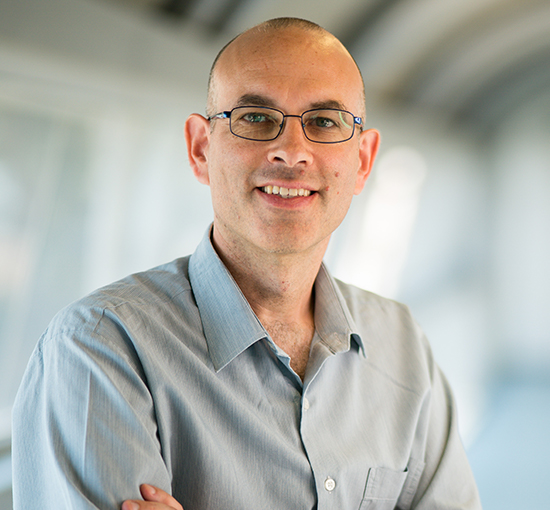
Roy Kishony
Professor Roy Kishony is the Henry and Marilyn Taub Professor of Life Sciences in the Faculty of Biology and holds a secondary position in the Faculty of Computer Science. He also is the immediate past director of the Lorry I. Lokey Interdisciplinary Center for Life Sciences and Engineering.
Prof. Kishony is one of the most prominent names in the struggle against bacterial resistance to antibiotics. A physicist and mathematician by training, he recently developed an AI-based algorithm to combat antibiotic resistance that markedly helped doctors at Maccabi Healthcare Services prescribe the correct antibiotic for urinary tract infection patients. He has also used genetic mapping of pathogens to unravel emergence of antibiotic resistance during infection within the human host. And he has developed “antibiotic cocktails” that can counteract and even reverse the evolution of antibiotic resistance. These approaches inspire a novel paradigm of patient-tailored antibiotic diagnostics and treatment.
Most recently, he made headlines with his research into the COVID-19 virus. Shortly after the pandemic took hold in early 2020, he and a team of researchers from the Technion and the Rambam Health Care Campus tested a method of pooling patient samples to expedite COVID-19 testing. Additionally, his lab has contributed to the urgent understanding of COVID-19 vaccine effectiveness at both the patient level and the community level. His studies were highlighted internationally as part of key policymaking decisions (e.g., by Dr. Rochelle Walensky, Director of the USA Center for Disease Control, and Dr. Anthony Fauci, Chief Medical Advisor to the President) and garnered worldwide attention, including coverage in The New York Times.
Born in Israel, Prof. Kishony received his bachelor’s degree from the Hebrew University of Jerusalem in 1992 through an elite program that allows participants to study while serving in the Israel Defense Forces. He earned his doctorate from Tel Aviv University in 1999, conducted postdoctoral studies at Princeton University and The Rockefeller University, and then joined the faculty of Harvard Medical School, where he became a full tenured professor. He moved back to Israel and joined the Technion in 2014.
He and his wife have four children.

